Delhi streets erupted in violence as the issue of sealing of unauthorised commercial establishments rocked the city even as the twin issues of power and water continued to plague Delhiites in 2006.
NEW DELHI: The streets of the capital erupted in violence as the emotive issue of sealing of unauthorised commercial establishments rocked the city even as the twin issues of power and water continued to plague Delhiites in 2006.
The sealing of commercial units in residential areas of the capital, ordered by the Supreme Court, met with fierce opposition from the traders, who took to the streets, holding the city to ransom, even as the issue assumed political connotations, especially with the MCD polls round the corner.
There were numerous strikes by the traders, which brought the city down to its knees, with the Delhi Bandh on September 20 witnessing mayhem as five persons were killed in police firing in Seelampur area and protestors went on a rampage, burning buses and damaging other public property.
The Centre, in a knee-jerk reaction, hurriedly set up a Group of Ministers to look into the issue.
Earlier, the government brought in a one-year moratorium on the sealing and demolition drives through passage of Delhi Laws (Special Provisions) Act, 2006.
However, the Supreme Court poured cold water on the hopes of the Centre for relief by striking down the bill as unconstitutional and asked the civic body to go ahead with the sealing drive.
The government then notified changes in the Master Plan to regularise commercial activities in residential areas and give relief to the traders from the court-ordered drive.
But the threat of sealing still loomed large over the 25,000 traders who had earlier given affidavits to the court for voluntary closure of their establishments.
The trading community put pressure on the government to find a solution fast and went on strikes.
The sealing drive was put on hold for over a month following the violence in Seelampur, with the government citing law and order problems.
The MCD action was resumed ultimately on November eight under heavy security cover, and a desperate government again knocked on the court's doors seeking relief for the 25,000-odd traders who were faced with closure of their establishments.
The court finally relented and put off the sealing of these establishments till January 31, 2007 and asked the traders to file fresh affidavits stating that the misuse of the premises had been stopped even as the Centre said it was expediting finalisation of the Master Plan for a permanent solution to the issue.
On the water front, the hyped Sonia Vihar Water Treatment Plant finally got water from the Tehri Dam via Uttar Pradesh after a year, bringing some joy to parched areas of South and East Delhi.
The relief was, however, short-lived as the quantum of water supply from UP was drastically cut, with the neighbouring state citing agricultural needs.
The problem was also reflective of a political stand-off between Congress-ruled Delhi and the Samajwadi Party government in UP.
The arm-twisting between the two states was also evident in the power sector, with Delhi blaming its electricity woes on Uttar Pradesh, complaining that it was overdrawing from the Northern Grid, and asking the Centre to take action against it.
Even as the Sheila Dikshit government continued to face criticism for the dissatisfactory results of the privatization of electricity supply, Delhi reeled under yet another power-scarce summer, with the availability falling way short of the peak demand of close to 4000 MW.
The steps taken by Delhi Government to make long-term arrangements to meet the capital's power needs included setting up of plants for generating electricity for the capital.
MoUs were signed with the Damodar Valley Corporation, Haryana Government, NTPC and Tehri Hydel Power Corporation.
Dissatisfied by the performance of the private power distribution companies, the Chief Minister summoned their bosses to review the situation.
Chief Minister Dikshit, at the recently held meeting of the National Development Council, asserted Delhi would be power surplus by 2011-12 as the government was taking bold initiative for reforms.
She said various power plants dedicated to meet the requirements of Delhi were in various stages of execution, as a result of which 8,288 MW of power will be added to the supply, thereby enhancing the power availability in the capital to 12,917 MW by 2011-12, making it power-surplus.
And apparently keen not to displease the public, already rattled due to the sealing and demolition drives, the government decided against enhancing the power tariff.
![submenu-img]() DNA Explainer: Why was Iranian president Ebrahim Raisi, killed in helicopter crash, regarded as ‘Butcher of Tehran’?
DNA Explainer: Why was Iranian president Ebrahim Raisi, killed in helicopter crash, regarded as ‘Butcher of Tehran’?![submenu-img]() 1 dead, many injured after London-Singapore flight hit by severe...
1 dead, many injured after London-Singapore flight hit by severe...![submenu-img]() This film was based on iconic love story, actors and director died midway, was released incomplete 23 years later
This film was based on iconic love story, actors and director died midway, was released incomplete 23 years later![submenu-img]() Meet man who used to go medicine factory in childhood, now runs Rs 109000 crore pharma company, his net worth is...
Meet man who used to go medicine factory in childhood, now runs Rs 109000 crore pharma company, his net worth is...![submenu-img]() Akshay Kumar 'accidently' collided with RTO officer's bike in Bangkok, shares what happened next: 'I immediately...'
Akshay Kumar 'accidently' collided with RTO officer's bike in Bangkok, shares what happened next: 'I immediately...' ![submenu-img]() Maharashtra HSC 12th 2024: Result declared, know how to check
Maharashtra HSC 12th 2024: Result declared, know how to check![submenu-img]() Meet man who topped IIT-JEE, studied at IIT Bombay, then went to MIT, now is...
Meet man who topped IIT-JEE, studied at IIT Bombay, then went to MIT, now is...![submenu-img]() Meet man who once used to sell newspapers at 9, cracked UPSC exam, he is now…
Meet man who once used to sell newspapers at 9, cracked UPSC exam, he is now…![submenu-img]() Meet woman who secured high-paying job, not from IIT, IIM, VIT, her record-breaking package is...
Meet woman who secured high-paying job, not from IIT, IIM, VIT, her record-breaking package is...![submenu-img]() Maharashtra HSC Result 2024: Class 12th result to be released today, know time, steps to check
Maharashtra HSC Result 2024: Class 12th result to be released today, know time, steps to check![submenu-img]() DNA Verified: Is CAA an anti-Muslim law? Centre terms news report as 'misleading'
DNA Verified: Is CAA an anti-Muslim law? Centre terms news report as 'misleading'![submenu-img]() DNA Verified: Lok Sabha Elections 2024 to be held on April 19? Know truth behind viral message
DNA Verified: Lok Sabha Elections 2024 to be held on April 19? Know truth behind viral message![submenu-img]() DNA Verified: Modi govt giving students free laptops under 'One Student One Laptop' scheme? Know truth here
DNA Verified: Modi govt giving students free laptops under 'One Student One Laptop' scheme? Know truth here![submenu-img]() DNA Verified: Shah Rukh Khan denies reports of his role in release of India's naval officers from Qatar
DNA Verified: Shah Rukh Khan denies reports of his role in release of India's naval officers from Qatar![submenu-img]() DNA Verified: Is govt providing Rs 1.6 lakh benefit to girls under PM Ladli Laxmi Yojana? Know truth
DNA Verified: Is govt providing Rs 1.6 lakh benefit to girls under PM Ladli Laxmi Yojana? Know truth![submenu-img]() AI models show bikini style for perfect beach holiday this summer
AI models show bikini style for perfect beach holiday this summer![submenu-img]() Laapataa Ladies actress Chhaya Kadam ditches designer clothes, wears late mother's saree, nose ring on Cannes red carpet
Laapataa Ladies actress Chhaya Kadam ditches designer clothes, wears late mother's saree, nose ring on Cannes red carpet![submenu-img]() Urvashi Rautela mesmerises in blue celestial gown, her dancing fish necklace steals the limelight at Cannes 2024
Urvashi Rautela mesmerises in blue celestial gown, her dancing fish necklace steals the limelight at Cannes 2024![submenu-img]() Kiara Advani attends Women In Cinema Gala in dramatic ensemble, netizens say 'who designs these hideous dresses'
Kiara Advani attends Women In Cinema Gala in dramatic ensemble, netizens say 'who designs these hideous dresses'![submenu-img]() Influencer Diipa Büller-Khosla looks 'drop dead gorgeous' in metallic structured dress at Cannes 2024
Influencer Diipa Büller-Khosla looks 'drop dead gorgeous' in metallic structured dress at Cannes 2024![submenu-img]() DNA Explainer: Why was Iranian president Ebrahim Raisi, killed in helicopter crash, regarded as ‘Butcher of Tehran’?
DNA Explainer: Why was Iranian president Ebrahim Raisi, killed in helicopter crash, regarded as ‘Butcher of Tehran’?![submenu-img]() DNA Explainer: Why did deceased Iranian President Ebrahim Raisi wear black turban?
DNA Explainer: Why did deceased Iranian President Ebrahim Raisi wear black turban?![submenu-img]() Iran President Ebrahim Raisi's death: Will it impact gold, oil prices and stock markets?
Iran President Ebrahim Raisi's death: Will it impact gold, oil prices and stock markets?![submenu-img]() Haryana Political Crisis: Will 3 independent MLAs support withdrawal impact the present Nayab Saini led-BJP government?
Haryana Political Crisis: Will 3 independent MLAs support withdrawal impact the present Nayab Saini led-BJP government?![submenu-img]() DNA Explainer: Why Harvey Weinstein's rape conviction was overturned, will beleaguered Hollywood mogul get out of jail?
DNA Explainer: Why Harvey Weinstein's rape conviction was overturned, will beleaguered Hollywood mogul get out of jail?![submenu-img]() This film was based on iconic love story, actors and director died midway, was released incomplete 23 years later
This film was based on iconic love story, actors and director died midway, was released incomplete 23 years later![submenu-img]() Akshay Kumar 'accidently' collided with RTO officer's bike in Bangkok, shares what happened next: 'I immediately...'
Akshay Kumar 'accidently' collided with RTO officer's bike in Bangkok, shares what happened next: 'I immediately...' ![submenu-img]() Meet man, his grandfather founded political party, uncle was CM, he ditched it for Bollywood, worked for Bhansali, now..
Meet man, his grandfather founded political party, uncle was CM, he ditched it for Bollywood, worked for Bhansali, now..![submenu-img]() Meet actor who worked with SRK, Salman, Sushmita, gave many flop films, quit acting, married granddaughter of CM..
Meet actor who worked with SRK, Salman, Sushmita, gave many flop films, quit acting, married granddaughter of CM..![submenu-img]() 'Pregnant for sure': Katrina Kaif, Vicky Kaushal's viral video from London sparks pregnancy speculations
'Pregnant for sure': Katrina Kaif, Vicky Kaushal's viral video from London sparks pregnancy speculations ![submenu-img]() Viral video: Bride makes dramatic entrance from giant ice cube at snowy Alpine wedding in Switzerland
Viral video: Bride makes dramatic entrance from giant ice cube at snowy Alpine wedding in Switzerland![submenu-img]() Elephant lifts safari truck with tourists in shocking viral video, watch
Elephant lifts safari truck with tourists in shocking viral video, watch![submenu-img]() In another gaffe, Joe Biden says he was US 'Vice President' during COVID-19 pandemic, watch viral video
In another gaffe, Joe Biden says he was US 'Vice President' during COVID-19 pandemic, watch viral video![submenu-img]() Meet Nihar Thackeray, lesser-known nephew of Uddhav Thackeray, he is Eknath Shinde's...
Meet Nihar Thackeray, lesser-known nephew of Uddhav Thackeray, he is Eknath Shinde's...![submenu-img]() Heroic buffalo herd rescues one of their own from lion ambush, video is viral
Heroic buffalo herd rescues one of their own from lion ambush, video is viral



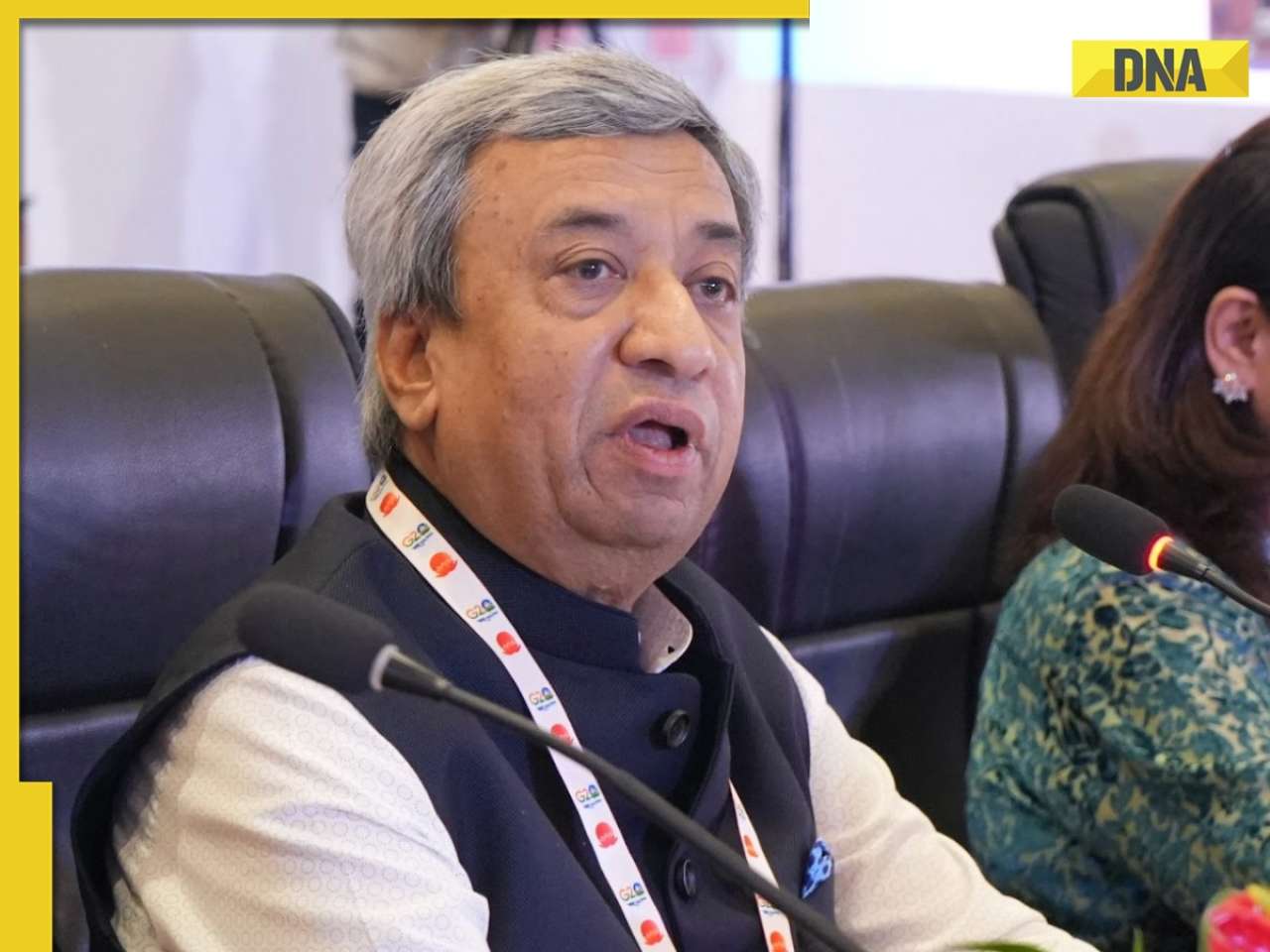
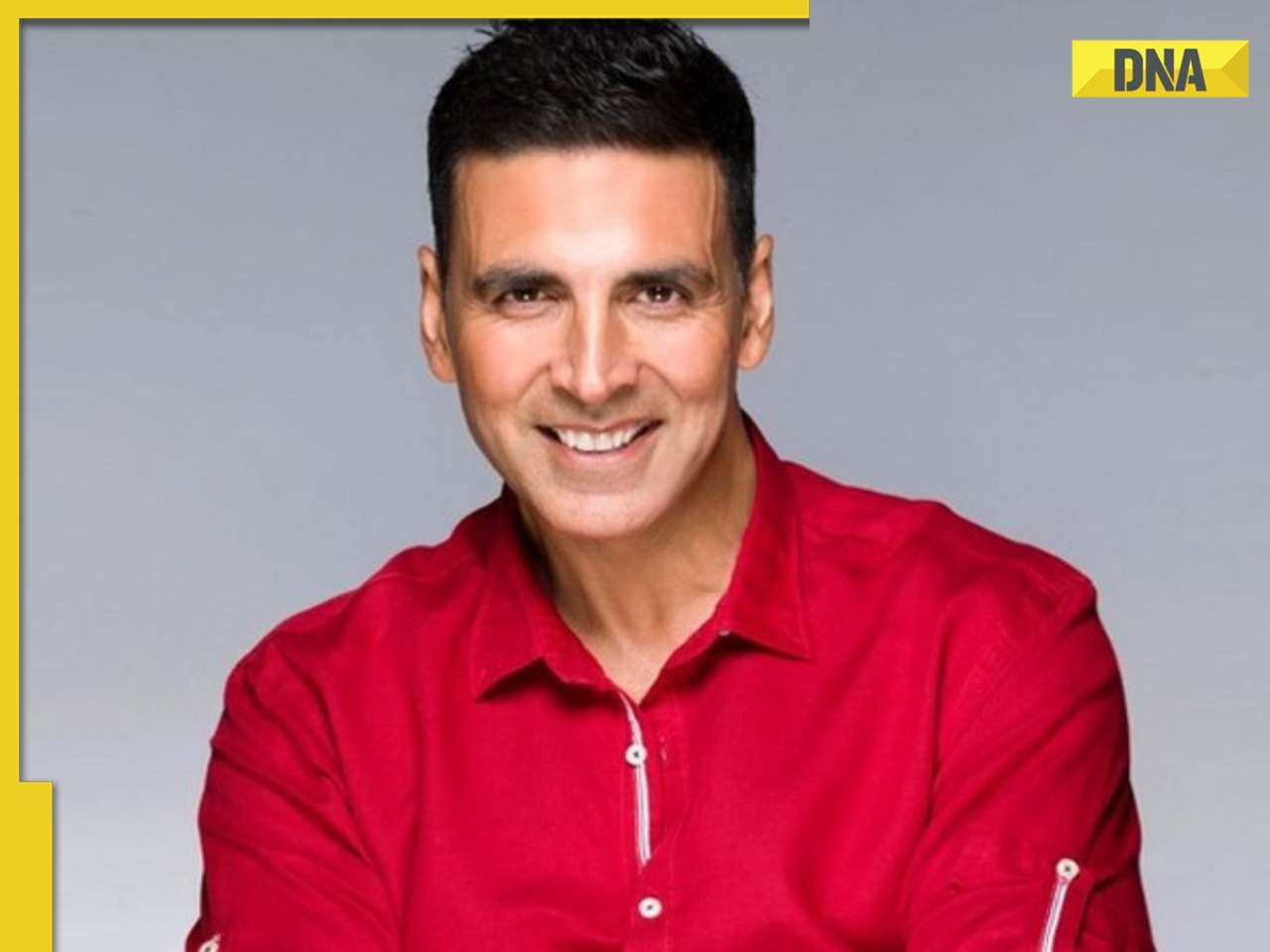



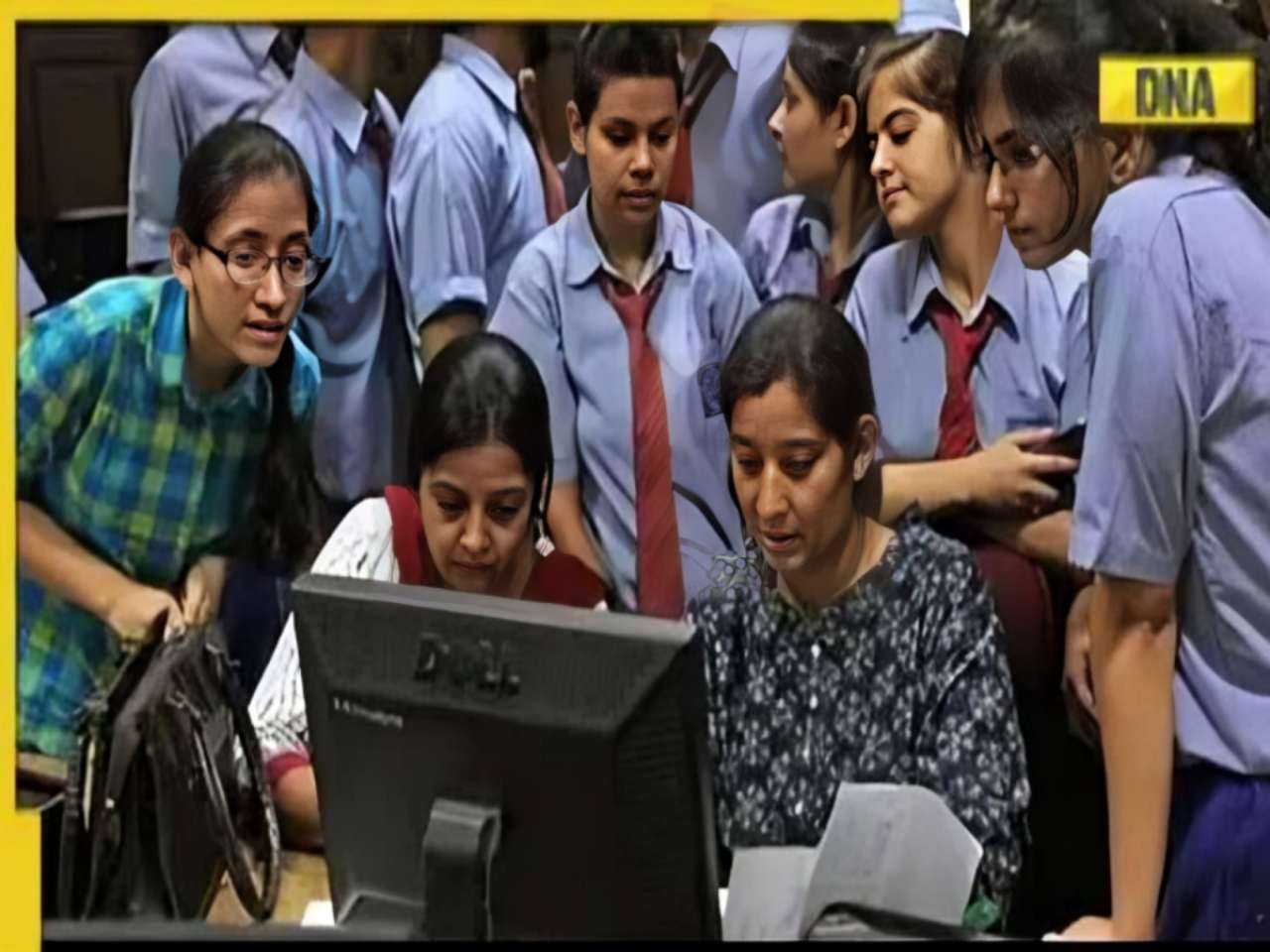
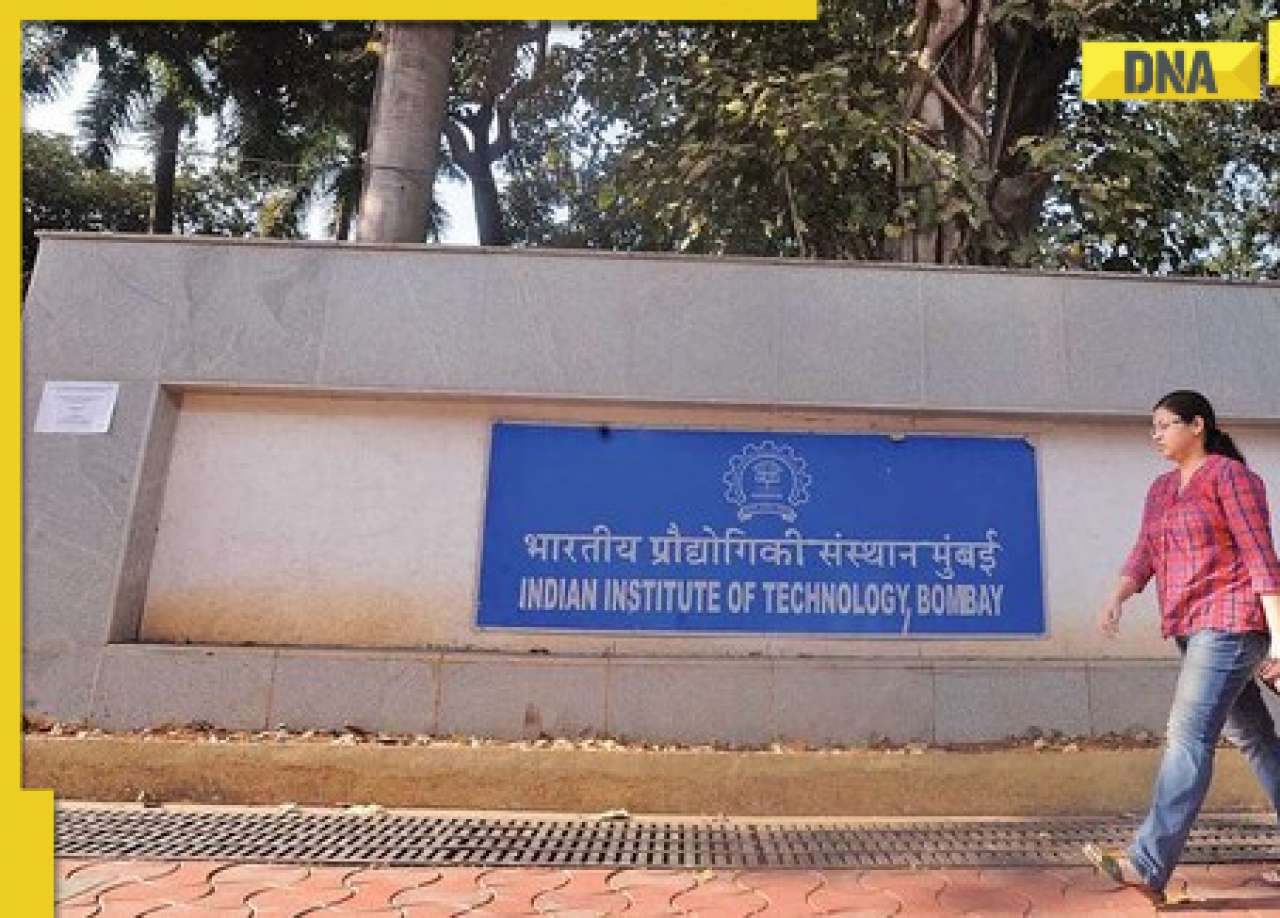
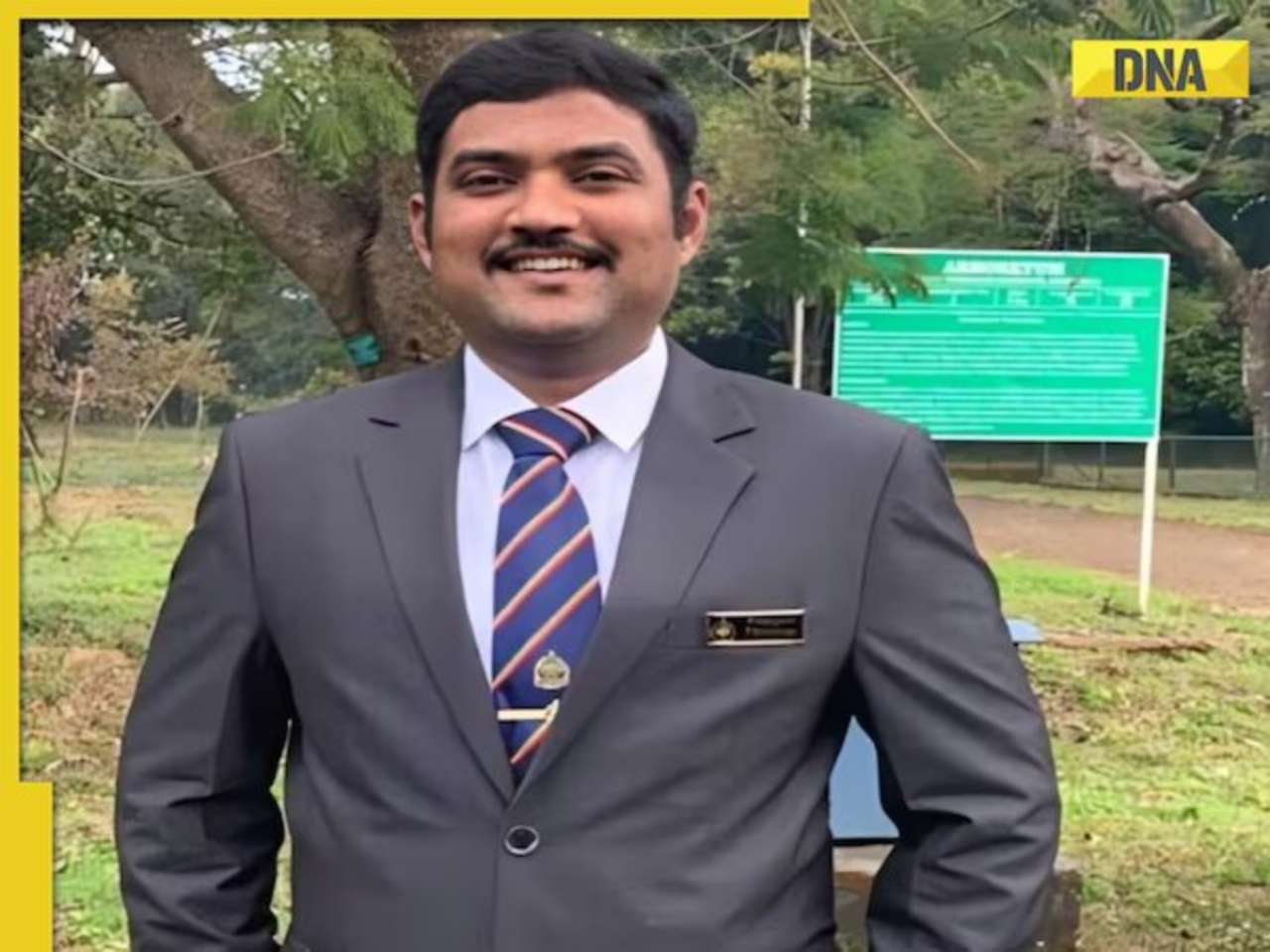
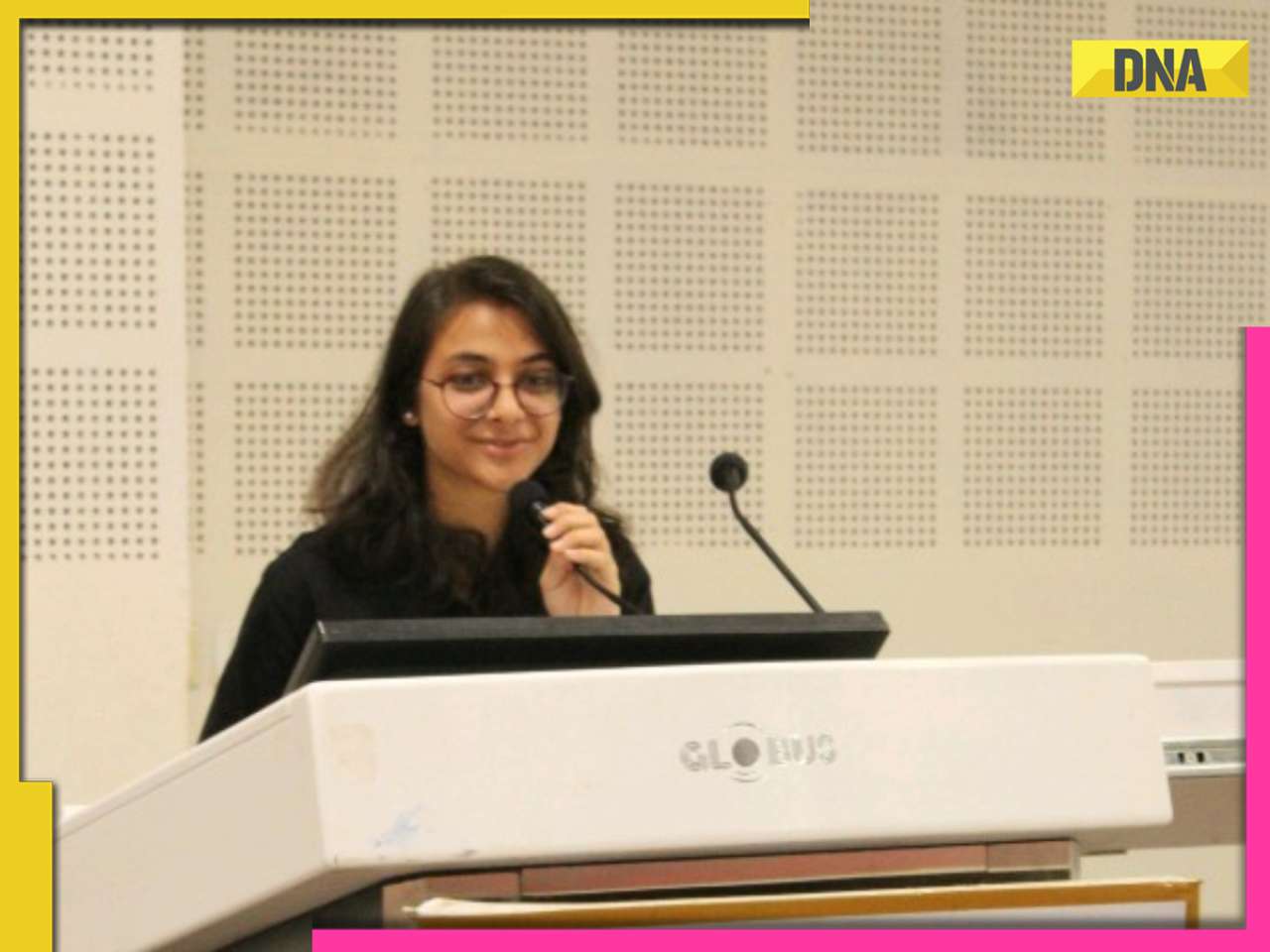
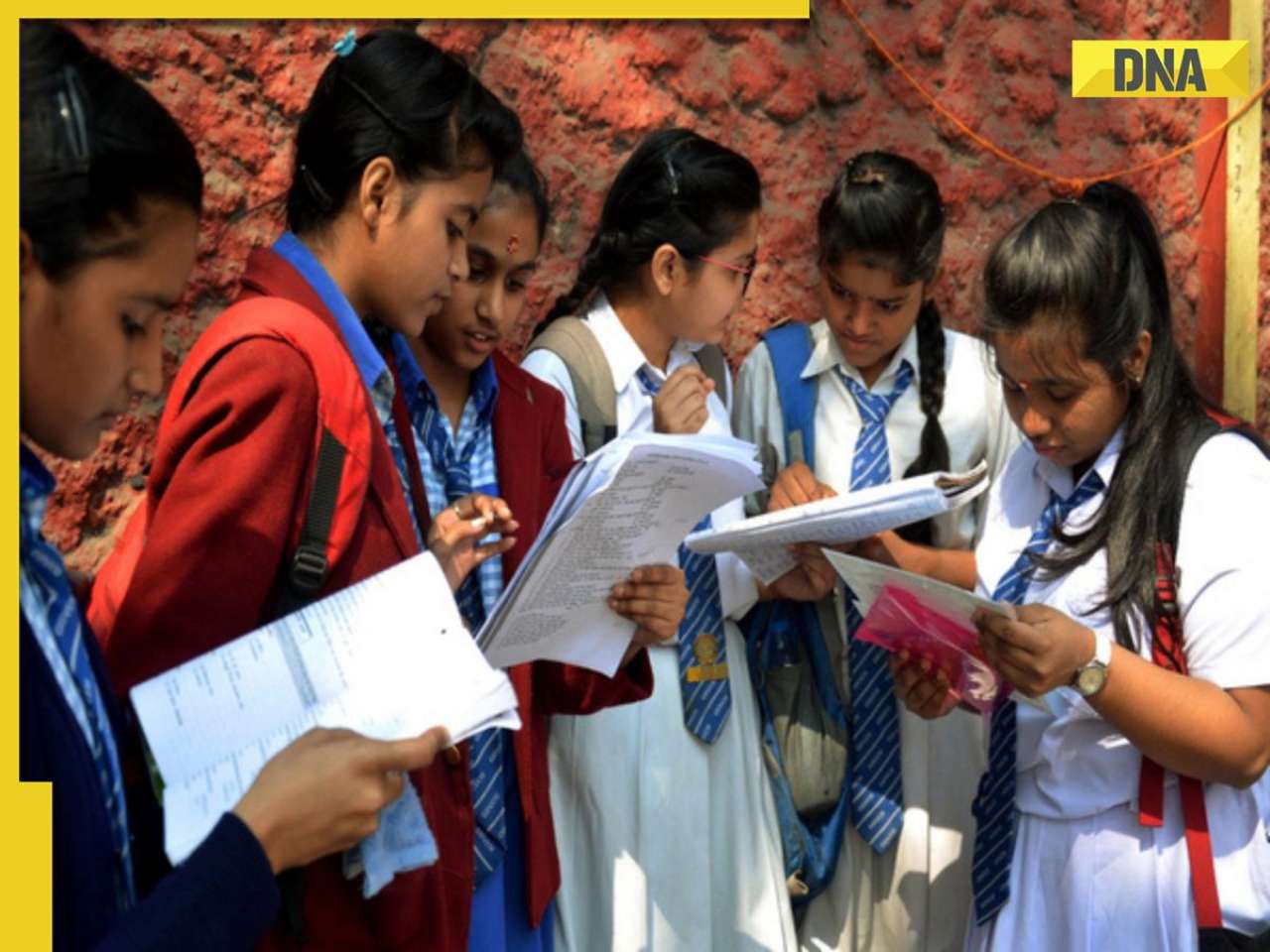



















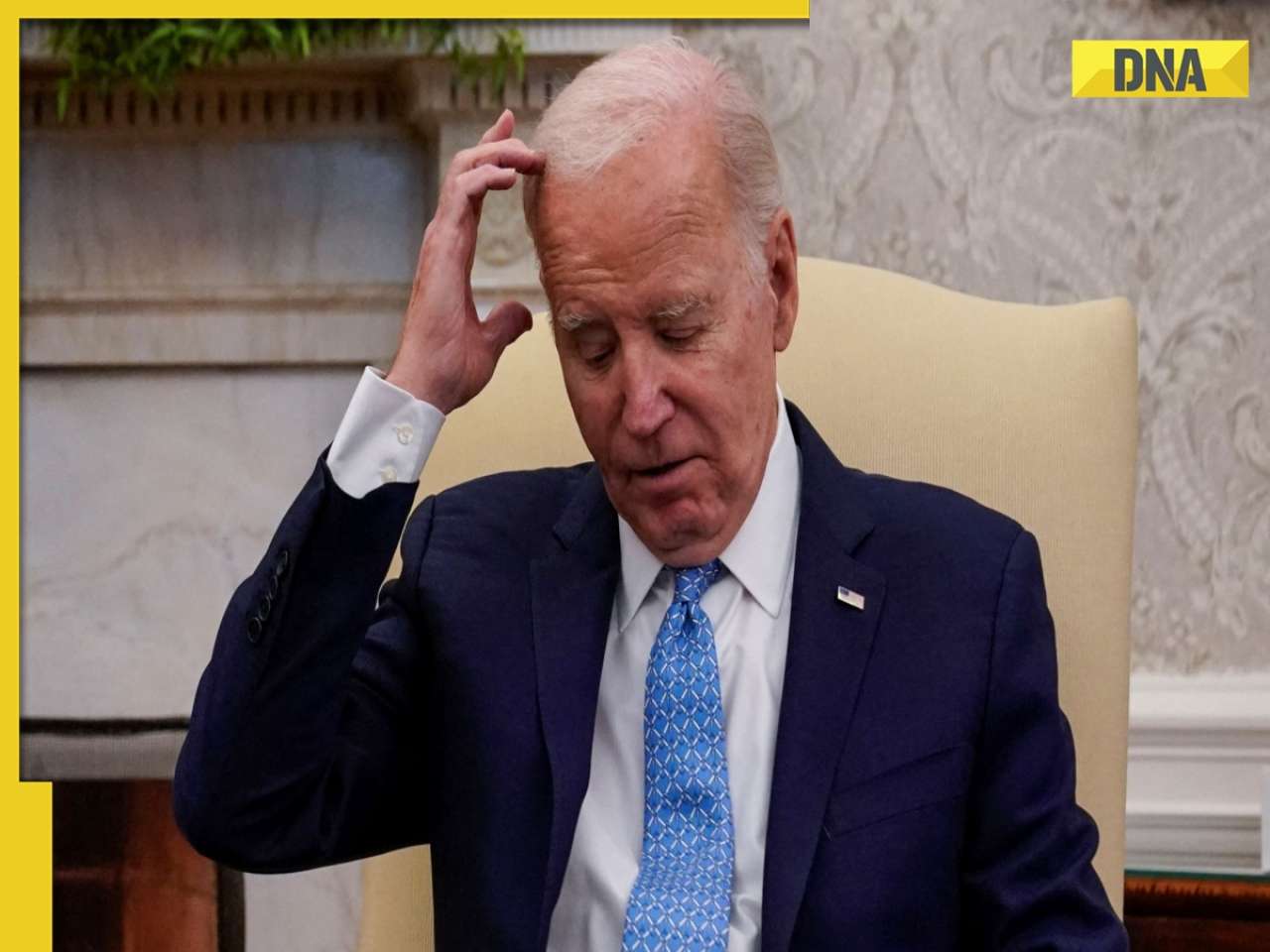




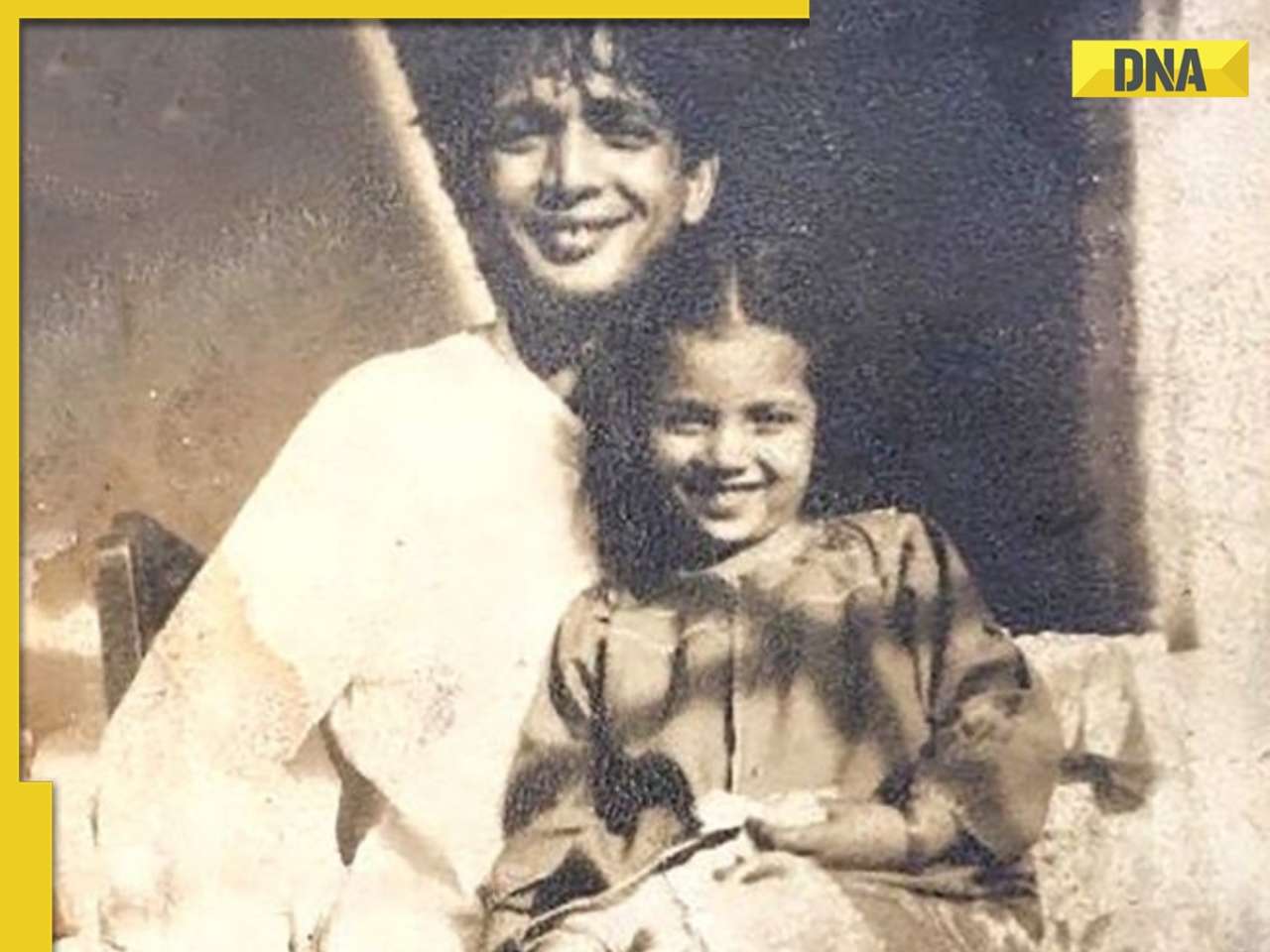
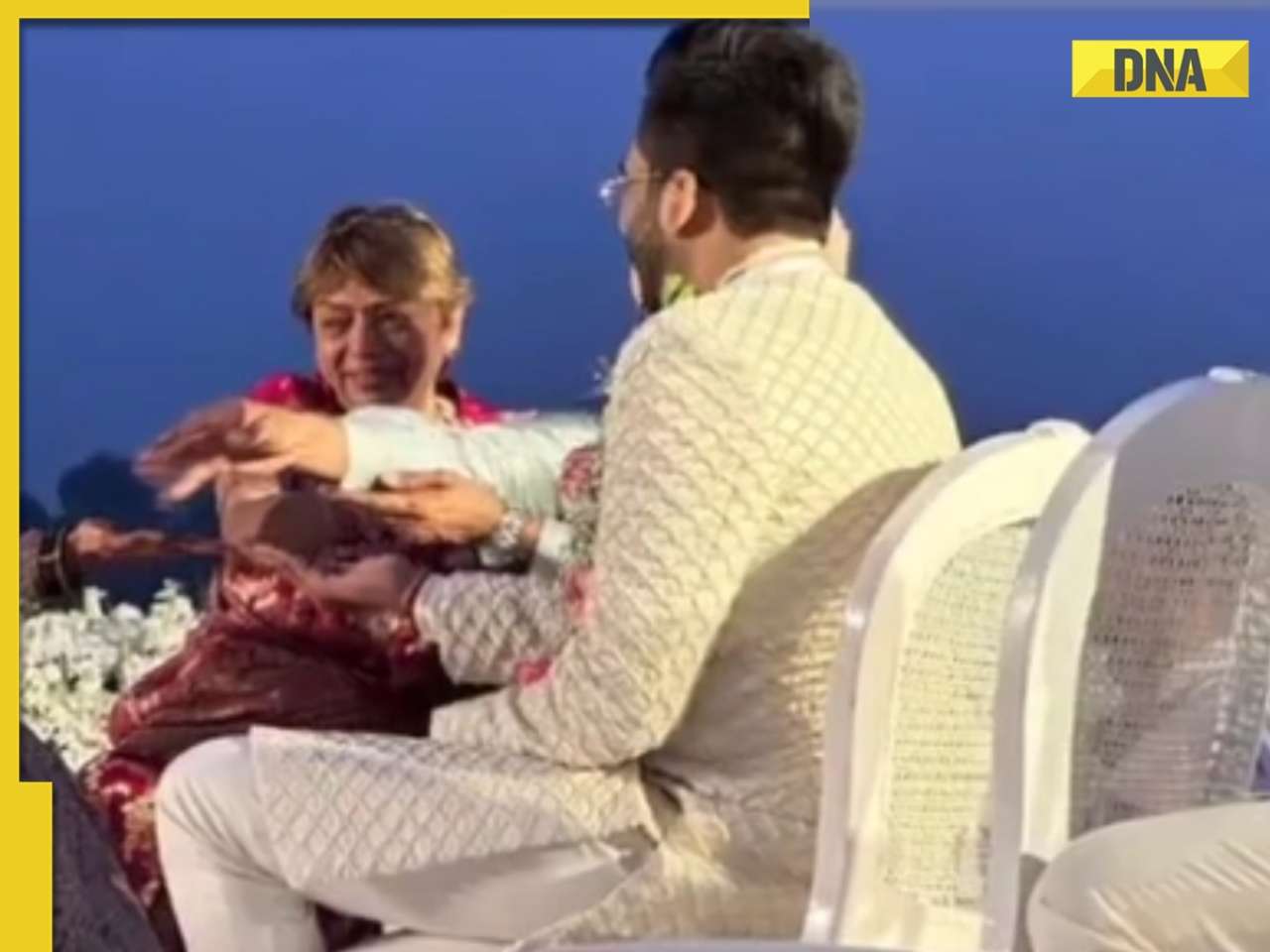






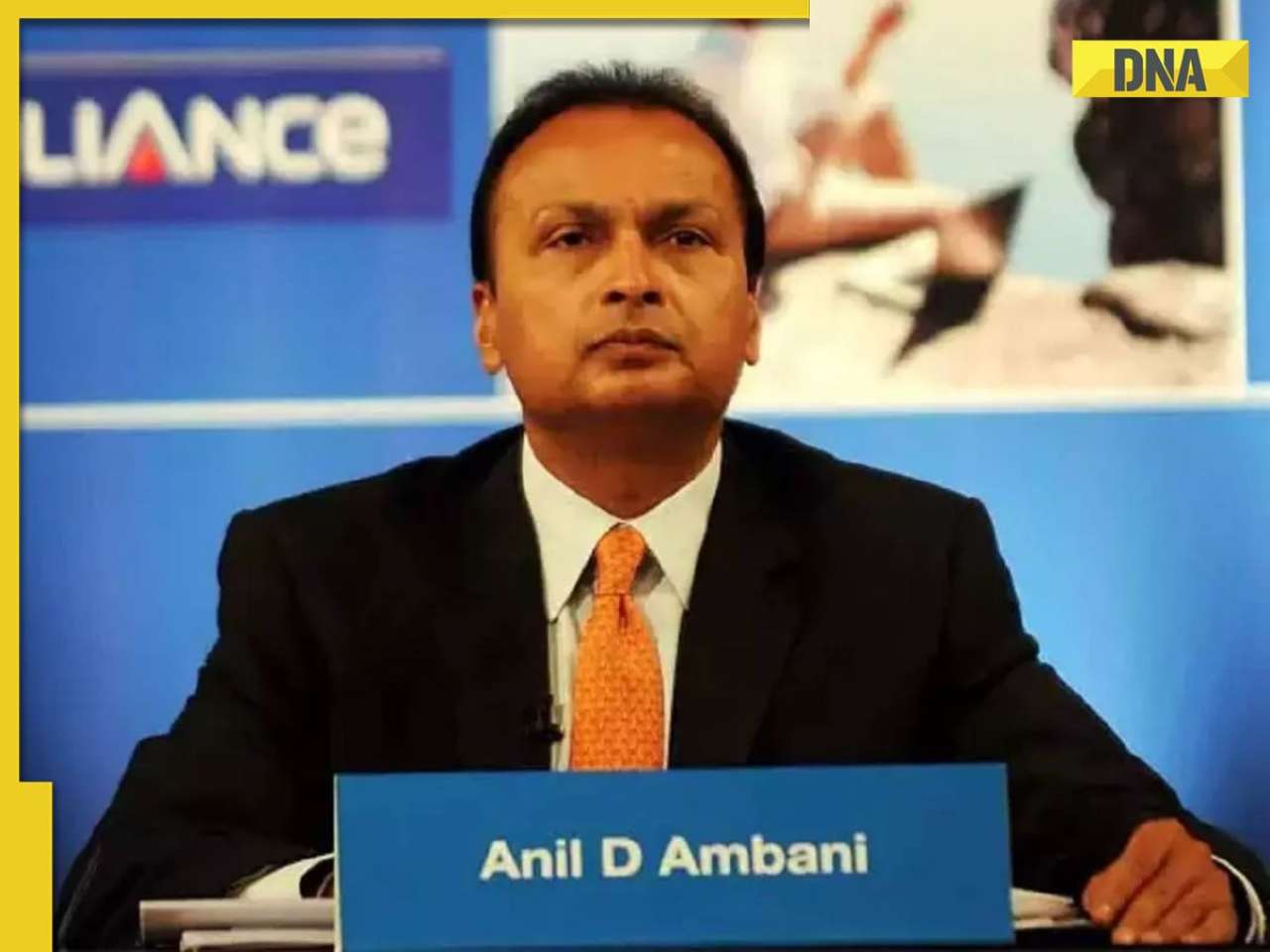









)
)
)
)
)
)